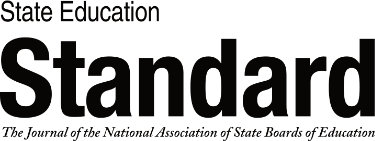Teachers have long struggled with the tension between ensuring a rigorous education for all their students and the reality that students arrive at the start of a school year with vastly different skills and conceptual understandings. The tension can be even more acute in math, which relies heavily on students mastering foundational concepts in prior years. The last two years made matters far worse—especially for students from historically disadvantaged groups.
Given this trajectory, state policymakers, administrators, and teachers have choices to make. Should they double down on the teaching of grade-level material, as federal policies signal they ought? Or should they instead refocus instruction and systemic incentives on meeting each student where they are?
The Urgent Need for Tailored Math Instruction
Also In this Issue
The Impact of COVID-19 on Math Achievement
By Jennifer Sattem, Matt Dawson and Elizabeth PeyserWithout urgent attention, the problem of unfinished learning will compound as students advance to later grades.
High-Dosage Tutoring
By Beth SchuelerStrong evidence points to equity and well-being benefits from well-designed programs.
Advancing Science Instruction
By Bobbi NewmanState boards can lean into efforts to boost K-12 science literacy and beef up access to high-quality, inquiry-based education.
The Urgent Need for Tailored Math Instruction
By Joel Rose and Michael WatsonStates can shift away from grade-level myopia to help students catch up.
10 Lessons Learned from the Science Classroom
By Ryan FuhrmanExperience with high-stakes accountability informs teacher's standards setting on the state board.
Mulling Changes to Math Instruction
By Jo Boaler and Jennifer Langer-OsunaA framework proposed in California seeks to boost achievement by increasing the engagement of all students.
Achieving Equity and Excellence in Mathematics Teaching
By Yasemin Copur-GencturkStates should revamp how teachers are equipped to deliver effective instruction.










 i
i
 i
i